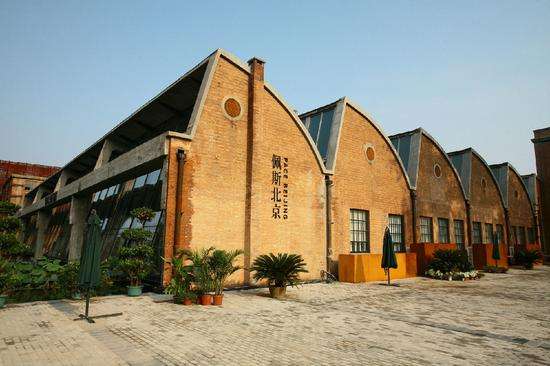In two German cities lies the birthplace of a worldwide arts revolution.
两个德国城市里,坐落着世界艺术革命的发源地。
One which looked to strip buildings from unnecessary adornments and build the foundation of what is called modern architecture.
一个致力于将建筑从不必要的装饰中剥离出来,奠定了所谓“现代建筑”的基础。
Welcome to the home of Bauhaus.
欢迎来到包豪斯学派的故乡。
It all started here, Weimar University, 1919.
故事还要从1919年的魏玛大学开始说起。
This is where German architect, Walter Gropius, alongside other artists, founded the Bauhaus movement.
这里是德国建筑师沃尔特·格罗皮乌斯(Walter Gropius)与其他艺术家一起创立包豪斯运动的地方。
His office alludes to what the architectural style would become-a force for clean, simple designs fit for the everyday life.
从他的办公室,我们也能看出这一建筑风格未来的模样 - 一股清洁,设计简单,适合日常生活的力量。
Not too far away in Weimar is the first official Bauhaus building, Haus am Horn, built for an exhibition in 1923.
第一座官方的包豪斯建筑,Haus am Horn,就离此不远。该建筑原是为1923年的一场展览而建。

Its clean lines and lack of adornments might look average today,
在今天看来,这栋建筑线条简洁,也没有繁杂的装饰,似乎并没有什么特别,
but, almost one hundred years ago, it was truly revolutionary.
然而,在将近一百年前,它确实称得上是革命性的建筑。
Seventy miles away in Dessau, the movement continued in 1925- initiating its most fruitful period.
在距此70英里以外的德绍,这一运动一直持续到了1925年 - 并由此进入它最富有成果的时期。
The most stunning representation is the Bauhaus Dessau.
最令人惊叹的代表是德绍包豪斯。
Seen as the pivotal building in Bauhaus, this structure amazed the world with its steel frame construction and asymmetrical plan.
作为包豪斯的核心建筑,该建筑以其钢筋框架和不对称设计惊艳了世人。
Nearby, you also have other buildings in the Bauhaus style.
附近的其他建筑也是包豪斯风格。
The industrialist minimalist aesthetic is visible in all of them.
这些建筑无不彰显了工业风极简主义美学。
In 1932, the Bauhaus school moved to Berlin, where it dissolved itself a year later, due to the Nazi regime.
1932年,纳粹掌权之后,包豪斯学校搬到了柏林,一年后就解散了。
Nevertheless, the movement spread all around the world, creating an international trend for all other spheres of art.
尽管如此,这一运动仍然传播到了世界各地,为其他所有艺术领域都创造了一股国际潮流。












